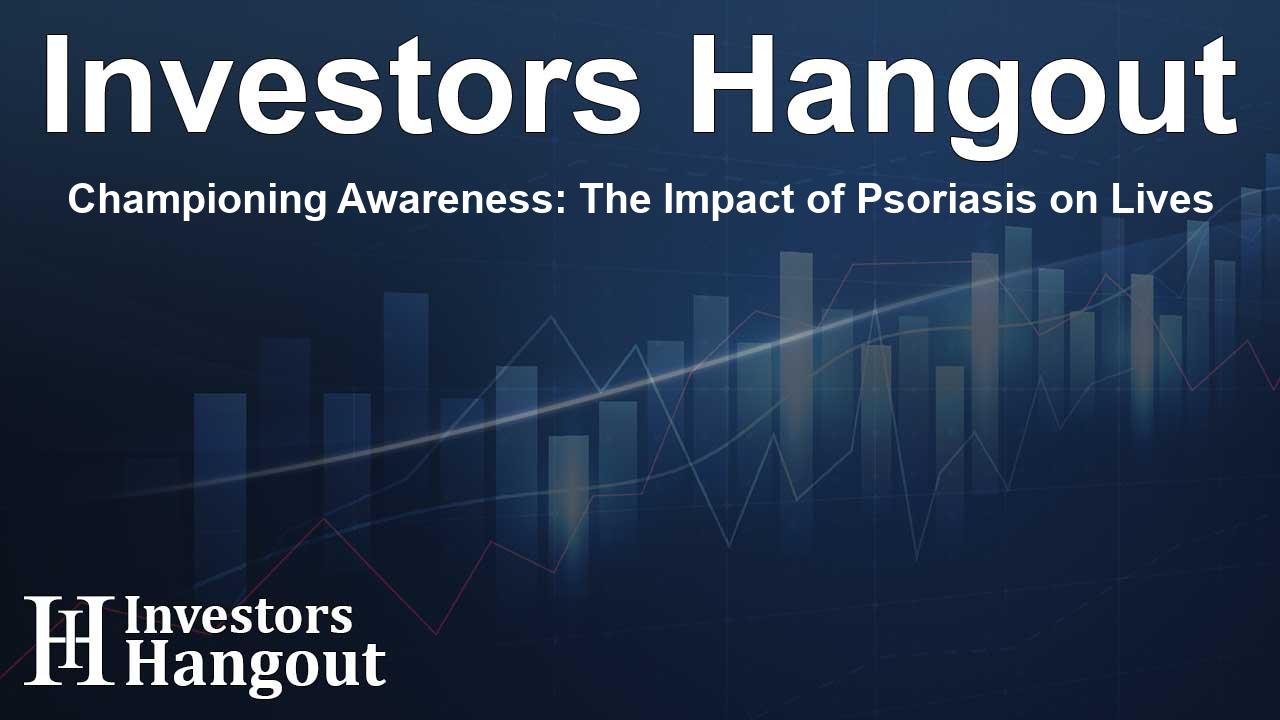Championing Awareness: The Impact of Psoriasis on Lives

Understanding the Importance of Psoriasis Awareness
The International Federation of Psoriasis Associations (IFPA) emphasizes the crucial connection between psoriasis and mental health. By raising awareness, the IFPA aims to mitigate the devastating consequences of psoriasis on millions of lives worldwide. Each year, October 29 marks World Psoriasis Day, a time to stand united with over 60 million individuals affected by this chronic condition.
Launch of 'Stop the Domino Effect' Campaign
This year, the IFPA is introducing the global campaign titled "Stop the Domino Effect." This initiative urges policymakers, healthcare professionals, and communities to recognize psoriasis not merely as a skin issue but as a serious, systemic condition that initiates a chain of significant health complications. These complications include diabetes, cardiovascular diseases, and mental health disorders, underlining the need for a proactive approach to treatment.
The Urgent Call for Integrated Care
According to the IFPA, the campaign stresses the necessity for integrated care and early intervention for individuals living with psoriasis. It advocates for equal access to treatments globally, highlighting the importance of addressing both the physical and mental health needs of patients. It's a call to action that aims to influence health authorities to prioritize psoriasis in national non-communicable disease (NCD) strategies.
A Deeper Understanding of Psoriasis
Psoriasis is often misconstrued as just a skin disease. In reality, it's a chronic, immune-mediated condition impacting the entire body. In psoriasis, the body's immune response leads to an overproduction of skin cells, resulting in painful, inflamed plaques. This condition has far-reaching effects that go beyond mere visible symptoms, affecting the quality of life of those affected.
Psoriasis and Its Broader Implications
Recent studies highlight the link between psoriasis and various non-communicable diseases such as obesity, diabetes, and metabolic syndrome. Alarmingly, one in three people with psoriasis is likely to develop psoriatic arthritis, a painful joint condition that can result in long-lasting damage.
The Mental Health Crisis Linked with Psoriasis
The mental health implications of living with psoriasis are equally concerning. Research reveals that individuals with psoriasis experience a significantly higher rate of psychological distress than the general population. There is a 109% increased likelihood of developing mental health disorders, with one in ten individuals facing diagnosed depression and nearly half experiencing severe anxiety. Furthermore, much stigma surrounds the condition, with many facing discrimination and losing career or educational opportunities because of their illness.
Insights from IFPA's Executive Director
Frida Dunger, Executive Director of IFPA, passionately stated, "We must stop the domino effect of psoriatic disease — and we must do it now. It's crucial to recognize that this condition profoundly affects every aspect of a person's life and is closely intertwined with mental health." She emphasized the need for effective early treatment options to prevent other serious health issues from developing.
The Call to Action
This World Psoriasis Day, the IFPA sends a poignant reminder: it's time to halt the domino effect. The campaign aims to raise awareness and advocate for comprehensive treatments that address the holistic needs of those suffering from psoriasis.
Frequently Asked Questions
What is World Psoriasis Day?
World Psoriasis Day is observed annually on October 29 to raise awareness about psoriasis and unite individuals living with the condition.
What is the 'Stop the Domino Effect' campaign?
It's an initiative launched by IFPA to highlight the systemic implications of psoriasis and advocate for integrated care and mental health support for patients.
Why is psoriasis considered a serious health condition?
Psoriasis is not just a skin disease; it's an autoimmune condition linked to various severe health issues such as diabetes and cardiovascular diseases.
How does psoriasis affect mental health?
Individuals with psoriasis are at a significantly higher risk of developing mental health disorders, experiencing higher rates of anxiety and depression.
What can healthcare providers do to help psoriasis patients?
Healthcare providers should recognize the importance of early intervention, integrated care, and the need for accessible treatments addressing both physical and mental health.
About The Author
Contact Henry Turner privately here. Or send an email with ATTN: Henry Turner as the subject to contact@investorshangout.com.
About Investors Hangout
Investors Hangout is a leading online stock forum for financial discussion and learning, offering a wide range of free tools and resources. It draws in traders of all levels, who exchange market knowledge, investigate trading tactics, and keep an eye on industry developments in real time. Featuring financial articles, stock message boards, quotes, charts, company profiles, and live news updates. Through cooperative learning and a wealth of informational resources, it helps users from novices creating their first portfolios to experts honing their techniques. Join Investors Hangout today: https://investorshangout.com/
The content of this article is based on factual, publicly available information and does not represent legal, financial, or investment advice. Investors Hangout does not offer financial advice, and the author is not a licensed financial advisor. Consult a qualified advisor before making any financial or investment decisions based on this article. This article should not be considered advice to purchase, sell, or hold any securities or other investments. If any of the material provided here is inaccurate, please contact us for corrections.
